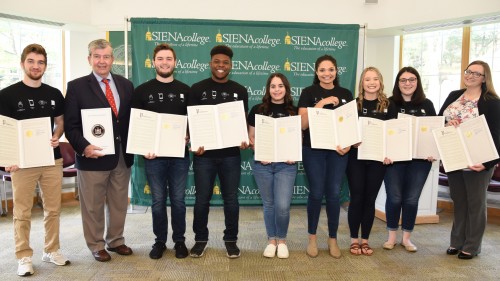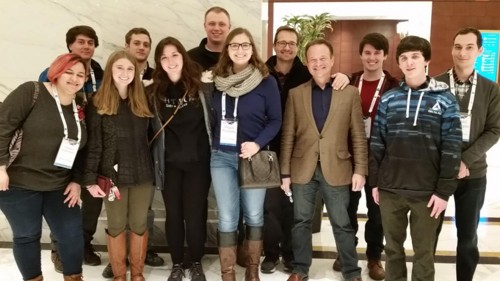
Assistant Professor of Biology Adam Mason was recently awarded a National Science Foundation (NSF) research grant to study morphogenesis in male Caenorhabditis elegans, which are small worm-like organisms. Mason’s NSF grant started on January 1 and is valued at $362,201. Mason’s research will link aspects of cell biology, genetics and developmental biology to provide a detailed description of morphogenesis in C. elegans and inform the understanding of similar processes in vertebrates.
Morphogenesis is the process by which embryonic structures are molded to generate the final adult form. It is a critical component of development in all organisms. Mason’s group will study the genetic and cellular events that control a morphogenetic remodeling event that occurs in the developing tails of male C. elegans. This work has the potential to identify novel conserved regulatory mechanisms that control morphogenetic changes.
“My research is driven by my desire to understand how the incredibly complex process of development is controlled at a cellular and molecular level,” Mason said. “My research will help us to identify genetic pathways that regulate the cell shape changes that occur during the development of all animals.”
Receiving the prestigious NSF grant will allow Mason to supply his research lab with equipment and supplies. It will also enable him to fund Siena College students working in his research lab during the summer and help him integrate content into his Developmental Genetics course. Mason’s project will give undergraduate students experience using current genetic and cell-biological techniques. It will also allow them to work with one of the pre-eminent invertebrate genetic model systems, C. elegans.
“I came to Siena because I care about teaching students. It is an absolute necessity that I incorporate as many students into my research as possible,” Mason said. “In order to teach science effectively, you can’t just be restricted to classroom teaching. It is very important that we provide students with a research experience that allows them to design experiments, critically analyze their results and place their data into the appropriate broader scientific context.”
Mason said students working in his lab will gain an appreciation for embryonic development, which he considers to be one of the most complex and beautiful processes in all of biology. In addition, Mason expects students to develop strong critical thinking skills and understand the value of conducting research, attributes that will prepare them for careers in the sciences or any other professions they decide to pursue.



